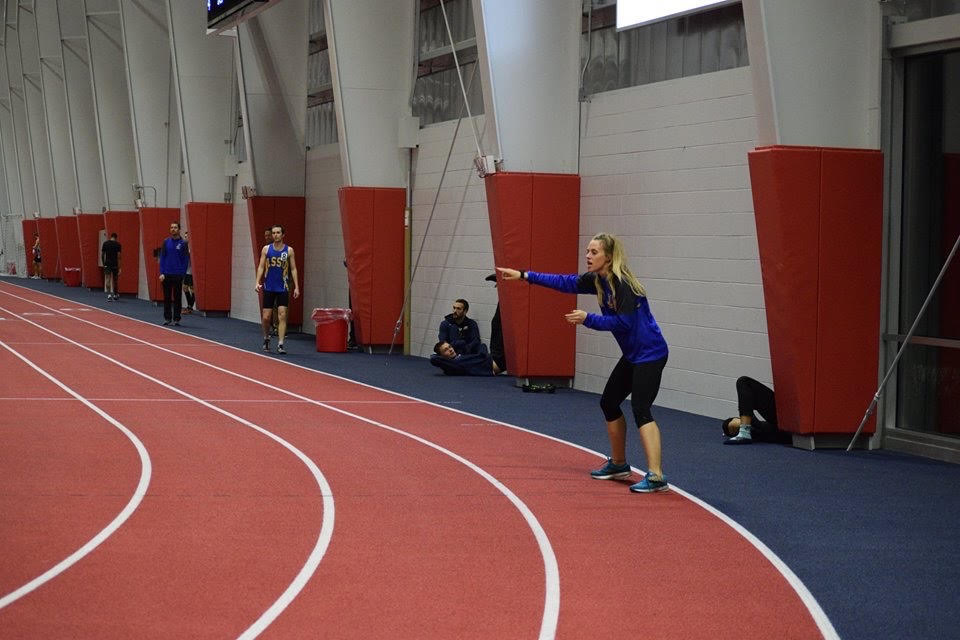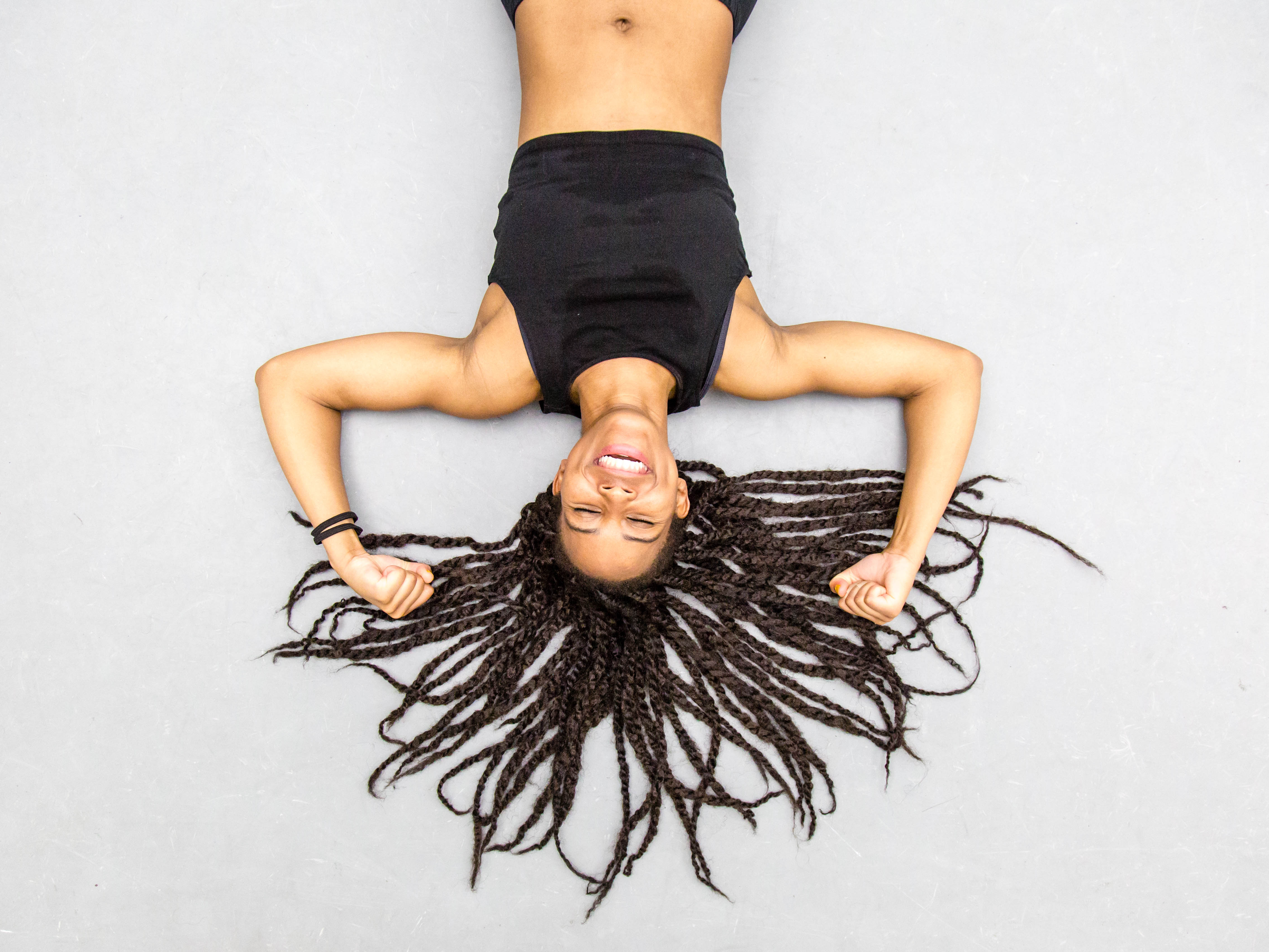We continue our celebration of the women of our sport who are leading, inspiring, and making us all stronger this week. In this series we talk to female coaches across a variety of aspects and disciplines within the running space about their experiences and insights as runners, coaches, and game-changers.
This week we’ve interviewed Bakline Ambassador Dani Filipek, who has experienced every facet of the sport from the middle school track team, to life as a professional runner. She currently coaches athletes at all levels for Luke Humphrey Running. Most recently, she has become a new mom!
Athletic History & Experience: DII All-American in the Indoor 5,000 meter (5th) . DII National Qualifier in 10,000 meter. GLIAC Champion in Indoor 5,000 Meter and Outdoor 10,000 Meter. 2016 Olympic Trials Qualifier in the marathon. Former professional runner at Hansons Brooks ODP. 2017 50 Mile U.S Trial Champion. Part of the 50 Mile Bronze Medal U.S Women's Team in Spain 2018. Ran 340 miles in 8 days for survivors of sexual and domestic violence from Upper to Lower MI.
Current Running/Life Interests: Cats, Kale, Trails, and Thrift Shopping. Currently working on becoming a #motherrunner and enjoying my evolving running through pregnancy and motherhood.

How did you get your start in the sport?
I got started in the sport in middle school. Everyone did track. So I tried it out. I found out I was pretty good at it when I was lapping the boys in races.
How have your interests and goals evolved since then?
I feel like I have loved every stage of my running journey, from awkward middle schooler, to college athlete who did not care and was not a contributor to the team (and cared way less about practice and more about parties), to an athlete who became an All-American her senior year. Then to a professional runner who had to walk on and prove it with an OTQ in the marathon. I also have started into ultra-marathons, even made a World Team (was 50 Mile Trail Champ in '17) with some pretty badass women that took home a bronze medal in the 50 Mile World Championship.
Last May, I ran 340 miles for survivors of sexual assault and domestic violence from [Michigan's] Upper Peninsula to Lower Peninsula. It raised $6,000 for survivors. That's a birth certificate for someone, a pair of underwear or socks for someone who left everything to escape violence, or even for clothing to give to survivors [of sexual assault] because the police take the clothing for evidence. I think that was the most pivotal thing I have done in my running career. I truly used my fitness for betterment and I would do it again if it helped prevent violence against one person. The run showed that survivors ARE strong, powerful, and courageous. Whether it's standing up against a perpetrator in court, running hundreds of miles in 8 days, or just LIVING everyday, survivors are damn incredible.
These are all experiences (even the too much beer, taco bell, and not enough sleep) that I never regret. They have made me a better coach and athlete, and my journey has given me growth and knowledge in the sport you cannot teach. You just had to grind and live through it.
P.S. there is nothing wrong with Taco Bell for a fuel source, I still go ham on a crunchwrap supreme now and then (currently drooling just thinking about it)!
What has kept you engaged over the years and through the various phases of your career?
I think being involved with so many facets of the sport. Whether it was running in college or professionally at many levels and different subsets--like marathoning and getting an OTQ, or ultramarathons and getting to rep the red, white, and blue. Also, I think that coaching from ALL levels from middle school, high school, college, and adult athletes has given me a wider range to understand and learn from the athletes and where they were at in each part of their journeys.

Did you have any female coaches in your athletic history? Did that change your experience in any way?
I wish I did! I had zero female coaches! I think that would have been incredible to have a strong female leader and mentor while growing up. Especially because I had a lack of a maternal figure, that having a supportive female role model would have been really cool.
What inspired you to start coaching?
Love of the sport I think gets everyone involved, but it evolves into more of the care and passion for people. It cannot be the drive of sport alone that makes a successful coach, it's those who connect, learn, and grow with for whom they serve.
What athletes, distances, and events do you coach?
I coached middle school cross country and track, and high school cross country. I was a college coach for NCAA DII, NJCAA, and NAIA, all at various levels between Head Coach, Assistant Coach, and Volunteer Assistant Coach along the way. I think also being at different levels of coaching also creates such a well rounded coach; for example, you are never going to be a great head coach if you don’t understand what it's like to be an assistant or volunteer. I really think serving at different roles and capacities is key to becoming a great coach, because you can never learn enough from the people around you. People have great gifts and knowledge, so we can all learn something from everyone and that also creates connectivity.
I also coach adults from anything from the 1 mile to the 100 mile for Luke Humphrey Running currently.
What is your coaching philosophy?
Consistency is key, and never underestimate simplicity in training.

What’s the most important thing you’ve learned in your experience as a coach that you wish you’d known as an athlete?
HA! Great question! I think that I wish I had known that it’s a process and to give myself grace and to be patient.
The one thing ANY coach needs is buy-in from athletes, and actually I have always bought into the messages and philosophies of all of my coaches. Even when I wasn’t a great athlete, I always believed that the workouts and what the coach was preaching or thought was important for the team to be successful. Any coach can be successful with buy-in of the athletes, you do not need to be a biomechanical genius or have sought degrees in athletics (those are great too), but truly being a good support and providing messages that get genuine buy-in is key.
You’ve been involved in running throughout your life as a high school, collegiate, and post-collegiate athlete and coach. What have you learned about building a supportive team culture, from both the coach and athlete perspective?
Supportive coaching is key, [and]... being able to be flexible with training--athletes develop, adapt, and change and we must also do this as coaches. If a workout needs to be moved for weather, bad period, sickness, fatigue; DON’T PUSH THROUGH. Meeting where your athlete is at is also important. Understand where the athlete is at in the process and move through that journey with them for where the athlete's goals lead and [for where] your expectations are as a coach.
Supportive team culture goes back to that “buy-in”--if you are bought into the team, the coach, the school, the program, you are going to be successful. It does not matter who writes the plan. I think athletes think that they need a “better coach” and coaches tend to compare [themselves] to other coaches, and those are both dead ends to success.If we remember that as a coach or an athlete, we should ALWAYS be growing and believing in ourselves and abilities… good things will happen.
What can we do as athletes and coaches to prioritize long-term athlete development over short-term performance goals at all levels of the sport?
As a coach, there should be no such thing as short term-development, because that can lead to dangerous things for the athlete (eating disorders, overtraining, burnout, fatigue, injuries). A short term process or philosophy is not looking at the athlete holistically. Now, short-term goals are good things--having goals that are in priority to climb the ladder of long-term success are key to growth.
When I coach, I look at where the athlete is at and my hope is to develop a long-term love of the sport, and I hope that not only with a healthy outlook on running, but physically, the athlete has more to give later in life. Health and happiness is my main concern--which may not be the philosophy of other coaches, which to me is disappointing.

What areas of the sport have most evolved or improved for women in the time you’ve been involved?
I think women are speaking out about injustices, inequities, and moral/social wrongdoing. ...Women like Mary Cain, Kara Goucher, and many other strong women [are] trying to stop coaches who aren’t doing things right or in the best interest of athletes’ mental and physical health.
We see women speaking out about mental health--this sharing of knowledge and the open access of story-sharing brings us not only closer as women, but empowers our sport more than ever.
Women are being open about things that formerly no one wanted to talk about--we are leaving the fear and the societal taboo to speak openly about mental health, physical health, periods, fertility, body changes, and female equity in the sport. It’s always been fabulous to be female, but it's our time in this sport and we are all making a difference.
What’s the most important area of growth or change you’d like to see for the future of female running?
Not only seeing more female coaches involved at all levels in their respective sports; but also [as] coaching staff, trainers, athletic directors, upper management athletic staff, and athletic boards. Seeing more women in these positions will continue to change the dynamics of sport, and how the sport evolves for betterment of female athletics.
As a current sexual assault advocate and former athletic coach of middle school through college, I would also like to create system change to change rape culture in sports. There so many sports that should be getting education on ending violence against individuals and how to end violent masculinity and victim-blaming. Also, teaching athletes it's the right thing to do--to speak up and be honest about the things that are going on around them and how they feel about those things.


